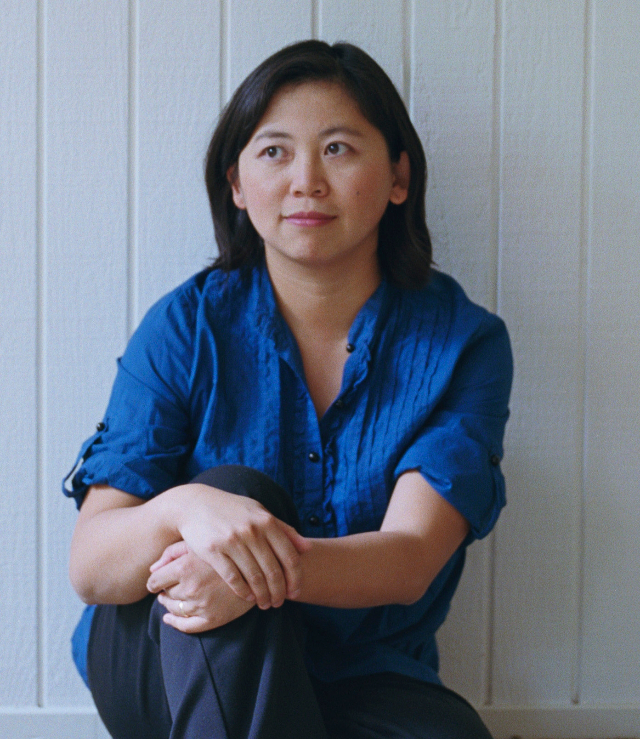Whether a hobby or an academic pursuit, creative writing calls for inspiration, and award-winning writer and UC Davis English Professor Yiyun Li has been inspiring her students since she began teaching here in 2008.
Among her many achievements, Li has won numerous awards for her writing, including the Whiting Award, the Lannan Foundation Residency fellowship, the 2010 MacArthur Foundation fellowship and most recently the 2014 Benjamin H. Danks Award. She was also named one of the 21 Best Young American Novelists under 35 by Granta, and one of the top 20 writers under 40 by The New Yorker.
“Being awarded is an external confirmation, and it’s good to have confirmation of your work. These awards are external and they don’t change how I look at the world, they don’t change how I write,” Li said.
Li has become a locus of literature, making people more aware of UC Davis and bringing prestige to the creative writing program.
“What I think should be most important to people is the quality of her work and what she brings to the University as a teacher,” said UC Davis Associate Professor of English and Director of Creative Writing Lucy Corin.
Two of Li’s undergraduate students describe what it is like having such a critically acclaimed writer not only as a teacher, but also as a mentor.
“It was a little intimidating, but because she is so friendly and down to earth, you kind of forget, but then you remember,” said fourth-year English major Seychelle Steiner. “I really want to be there because she knows what she is talking about.”
Steiner said that she refers to the things she learned in Li’s English 100F class whenever she writes.
“I think it is incredible to have someone like that be a mentor and pass that kind of knowledge down,” said third-year English major Kate Bollens.
In the last two years, Bollens has taken several classes with Li, whom she claims is one of the best teachers at the University.
“I personally love learning from people who are considered masters in their profession because they know exactly what they are doing,” Bollens said. “This is what I want to be able to do too, and it’s inspiring to see it.”
Li herself looks up to those she considers masters in storytelling, specifically classics of Russian and Irish literature. She also keeps up-to-date with contemporary writers, which is advice she often gives to students.
“They really have to read the books and be patient,” Li said. “Some of the students, especially the young ones, want to be the next, hottest young writer in The New York Times, but writing is not a race.”
In addition, many students should not rush into graduate programs, according to Li.
“I think it’s important to learn about the world,” Li said. “You need to live. Any kind of experience is good for a writer.”
On the other hand, Corin stated that there is the long-standing binary debate about whether a writer needs to experience the world or whether imagination is enough. However, she believes these don’t conflict.
“If you went out and really challenged yourself to put yourself in unfamiliar situations to see what your education has done with you so far, then you know yourself well enough to make a wise decision about graduate education,” Corin said. “It’s a soul-searching kind of a moment.”
Recalling her own soul-searching moment, Li was in a science program to get her Ph.D. when she took her first creative writing course. It took her about five years to decide to leave science for writing.
In Corin’s opinion, the world would be a much better place if people didn’t think they had to choose one discipline over another, but were able to incorporate both into their lives.
“I hear from students all the time who are trying to balance the things about themselves that sometimes are in conflict with the expectations that the people that they love have for them,” Corin said. “For writers, a lot of times, writing is the locus of that discord.”
According to Corin, Li’s success wouldn’t have as lasting an impact if she wasn’t equally committed to both teaching and to the art itself.
“It’s one thing to have someone having a lot of success, but it’s another thing to have someone who is having a lot of success who is dedicated to having that be meaningful to the next generation,” Corin said.
And one thing that is meaningful to the next generation that both Steiner and Bollens attest to is Li’s skill at giving helpful, constructive criticism in a way that does not discourage a young writer.
“All of her comments are very thoughtful, and are only there to make you a better writer and to make your characters richer and your plot more complex,” Steiner said.
It is this process that makes teaching a learning experience for Li as well.
“Writing is one thing that students learn from their professors where professors also learn from the students. Just reading students’ stories I can think about how to write too,” Li said. “I love all my students at Davis.”
EMILY MASUDA can be reached at features@theaggie.org.
Courtesy photo.





